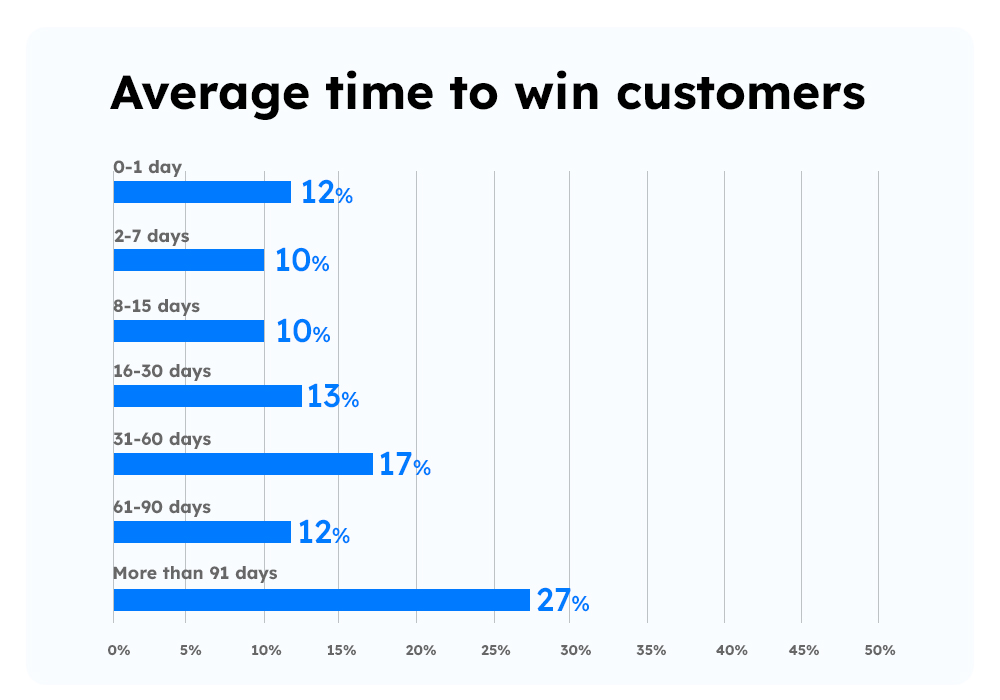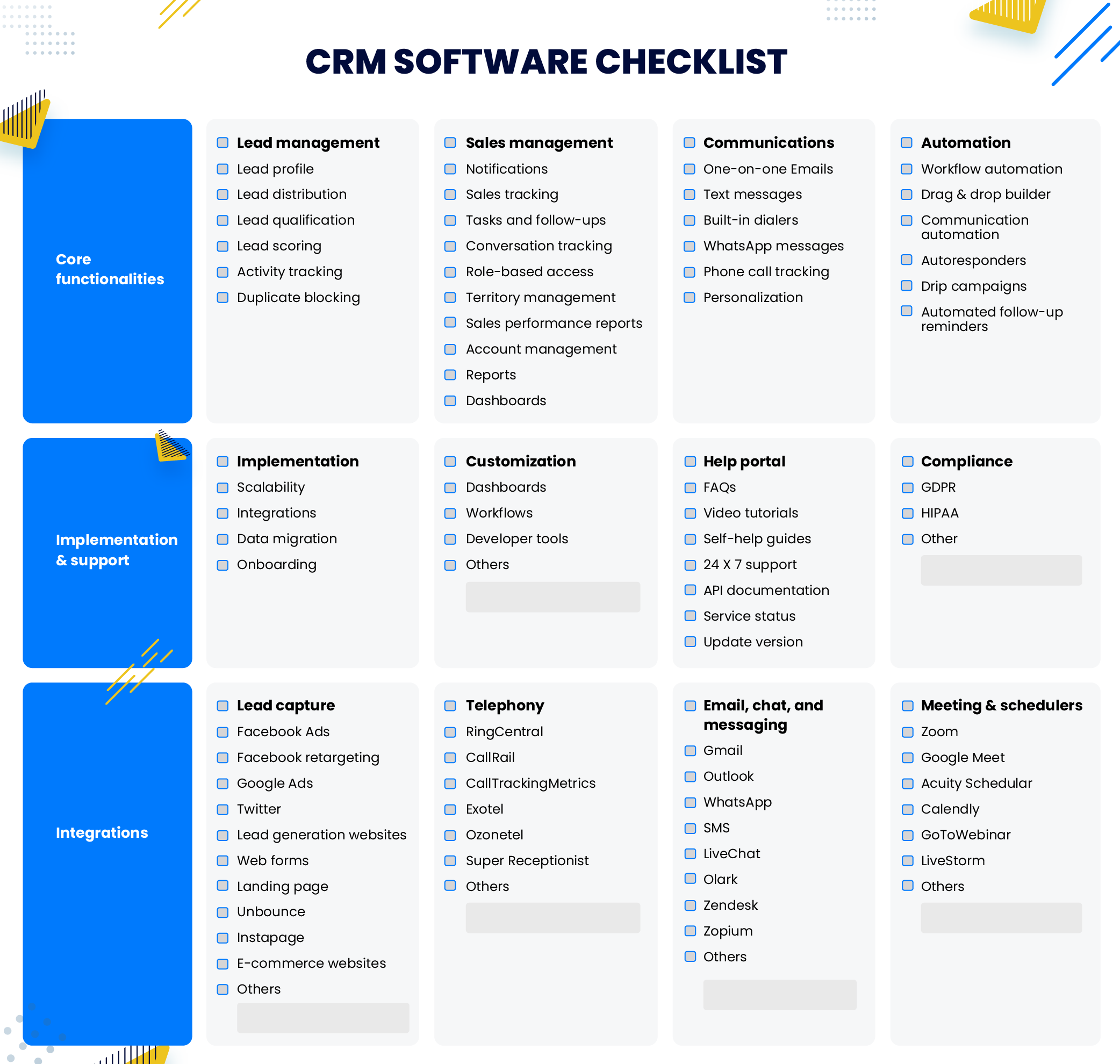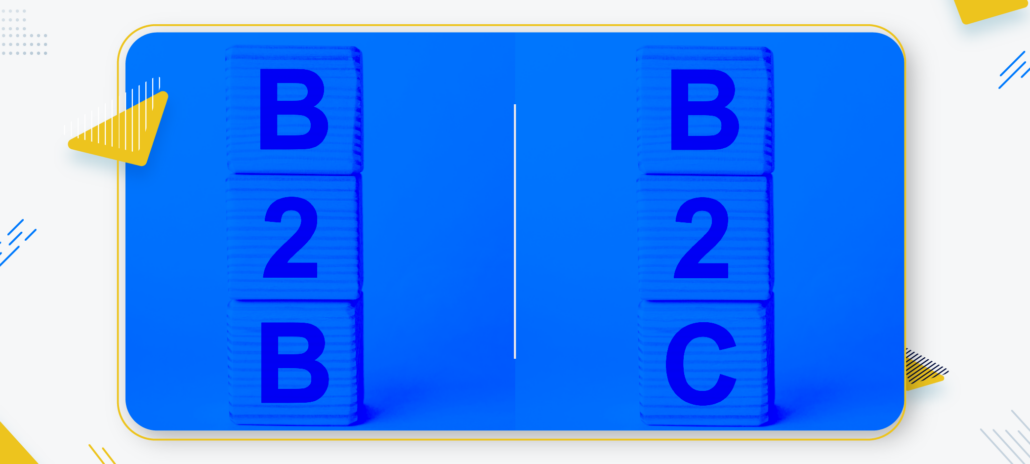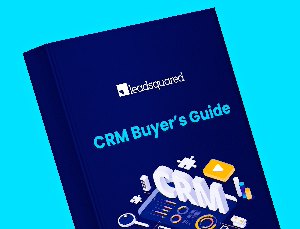CRMs are designed to help businesses manage their sales activities and relationships with customers.
However, not all CRMs make sense for all businesses.
For instance, a B2C CRM is very different from a B2B one.
The functionalities, features, and use cases differ for both market segments.
If you are planning on buying a CRM, you need to know the difference between the two.
The reason B2B and B2C CRMs are designed differently is simply that the customer acquisition process in both these industries is completely different.
Let’s first see how they differ.
Why do B2B and B2C Businesses need different CRMs?
Business to business (B2B) companies sell their products and services to other businesses instead of individuals.
Examples of B2B businesses are IT services, website services, corporate insurance companies, etc. These businesses are more contact-based and cater to a smaller audience.
For example, a business that sells payroll management software has a smaller audience to target and fewer contacts to store. A CRM designed for such a business would have the ability to store fewer leads. Also, their nurturing capabilities would be designed keeping their requirements in mind.
Recently, we analyzed the buying patterns of over 1000 B2B customers. We found that hardly 10-12% of them are ready to buy from day 1. Others need constant nurturing and follow-ups from sales reps.

Now let’s look at the B2C requirements.
Business to consumer (B2C) is the model where businesses sell directly to the end-user of their products or services.
Examples of this business model would be restaurants, hospitality businesses, telecom industries, etc. Of late, this model most commonly refers to e-tailers, i.e., businesses that sell their products to consumers online. They are more lead-based and cater to a much wider audience.
Imagine a business that sells furniture online and actively promotes the products on various channels such as email, social media, and PPC ads. They would be getting an inpour of leads, and a B2B CRM with a limited storage capability cannot possibly handle such a large inflow. They would need a CRM designed to handle a large database of leads.
Therefore, while buying a CRM, you need to identify the type of CRM it is and carefully evaluate its features.
Before we go into details, let’s understand the meaning of B2C CRM.
What is a B2C CRM?
A B2C CRM is a customer relationship management software built exclusively to handle the business requirements of customer-facing businesses. B2C CRMs can handle a high volume of leads coming through various sources. They also support sales and marketing activities like calling, campaign management, sales management, and lead management.
Since B2C CRM handles large volumes of data, its internal search engine is very efficient and allows customer/audience segmentation based on demographic, geographic, psychographic, and socio-economic details.
Most people think that all CRMs perform similar functions. But that is not the case.
How is B2C CRM different from B2B CRM
| Functions | B2C CRM | B2B CRM |
| Number of leads | More. Hence needs better lead management criteria. | Lesser number of leads. Hence, is easy to manage. |
| Lead management | Lead level management. Each person is treated as an individual identity. | Contact level management. There may be multiple contacts within just one company. B2B CRM needs account hierarchical structure. |
| Lead generation | Multiple lead generation sources. | Less number of lead generation sources. |
| Lead journey | Complex. The same lead may come from multiple sources—traverse many paths before they actually become leads. | Comparatively simpler. Leads are either bought or generated from a few sources. |
| Sales cycle | Shorter. Needs the ability to trigger repeat purchases for the lead. | Longer. Therefore, long-term management of leads is required. |
| Marketing campaigns | Complex trigger-based drips and workflows are extremely important. | 1-1 email campaigns are the general communication channels. |
| Purpose served | Generally, B2C companies want to manage marketing and sales operations in one place, with a complete picture of everything. That is, they need CRM + marketing automation + lead management in one platform. | Generally, B2B businesses use CRM for sales management, sales performance tracking |
| Call volume | High. Needs proper telephony integrations to manage phone calls. | Comparatively lower. Hence easy to manage. |
| Customer support requirements | High volume of customer service requests—integration with customer ticketing system, chat, etc. required. | Less. (especially if the business is not SaaS) |
| Proposal management, invoicing | Not so important | It is an important feature of B2B CRM |
| Call center software integration | Sometimes there are large call center teams. Therefore, needs integrations with call center software. | Not mandatory |
| Tracking customer activities | Tracking various customer data—contact information, purchases, clicks on website, comments on Facebook page, etc. are required. | As the activities are limited, tracking all customer activities may not be a priority. |
| Repeat buyers | Repeat buyers might be many and is impossible to track on a personal level. | Repeat buyers can be handled on a personal level because of low volume. |
| Building relationships | As there are multiple factors and external agents involved here, building a relationship with the customer isn’t easy. | Generally, CRMs are used to manage customer relationships, which is simple. |
| Role of emotions | B2C purchases are generally very emotional, hence proper tracking is required. | B2B purchases are generally not emotional, so tracking is not necessary. |
| Loyalty programs | Loyalty focused. Loyalty/referral programs play an important role here. Hence, a CRM equipped to run that is needed. | Sales-focused. Loyalty programs are not so commonplace here. |
| Social engagement | Social engagement is very important. So, social profiles, behavior tracking becomes very important. | Social engagement is less important in the buyer understanding / buying cycle |
| Viral quotient | B2C campaigns have high viral quotient—so the CRM needs to be robust enough to handle high volume of data. | Viral quotient is limited, so there is less probability for high volume of data. |
| Users | B2C businesses also work with agencies. So, there needs to be transparency as well as the capability to handle different types of users. | Agencies don’t usually come into the picture, and if they do are easily manageable. |
| Customization | B2C CRM product is standard. | B2B CRM products are more customized. |
How to select the best CRM for your business—a checklist
While looking for a CRM, you should evaluate:
- Do they cover most of your requirements?
- Do they provide customization or integration with third-party apps for the parts of requirements unfulfilled by the CRM?
- Is the software scalable and flexible to your needs?
- How good is their customer support?
- Do they have good reviews on sites like G2, Capterra, etc.?
- How long is their implementation time?
- Compliance—is the software GDPR and/or HIPAA complaint?
Here’s a checklist of essential features and support you should look out for in a CRM vendor.

You can also download this editable CRM checklist pdf to share with your team or refer to later.
The best B2C CRM software for 2024
LeadSquared is the best B2C CRM platform for high-velocity sales teams. It offers sales execution, digital onboarding, and marketing + process + field force automation solutions. Currently, it has a strong 2,00,000+ user base worldwide.
Some of its most-loved features are:
- Reports and dashboards
- SmartViews. A proprietary feature that enables sales reps to access their accounts, leads, opportunities, activities & tasks in one place.
- Lead management
- Advanced search
- Telephony
- Drag and drop workflow automation builder
It is a complete sales execution platform for B2C businesses. You can book a demo to experience its capabilities or read the case studies below.
B2C CRM Case studies
Do you want to know how LeadSquared can help transform your sales? Hear from our customers!
BYJU’S
BYJU’S is one of the top e-learning platforms globally, with over 9000 employees and 115 million registered students. The EdTech platform is valued at US$18 billion and is progressing in the international markets, including the U.S.
BYJU’S uses LeadSquared for:
- Capturing leads from several different sources
- Student activity tracking
- Lead prioritization
- Engagement
- Sales tracking and reporting
“When you have 1000s of people in your team, you cannot just measure the output. You need to perfect the input as well. If you have a six-step sales process, then you need to understand what is happening at every step. LeadSquared has helped us do all of this and more.”
Mrinal Mohit, COO, BYJU’S Classes
PSYCHē
Nashville-based PSYCHē connects people seeking mental health therapy with the right therapist for virtual or in-person sessions.
PSYCHē uses LeadSquared for client management, process automation, and reporting. They have realized many benefits, some of which are:
- Improved speed-to-lead
- Ability to track all of their clinicians across the country
- Ability to track contacts, leads, lists, and campaigns
- Segmented list to personalize every interaction
“We’ve roughly doubled the amount of leads we’re able to manage. A lot of that is due to the time-saving factor of working with LeadSquared. We’re able to cut down our turnaround time responding to inquiries and reach out to and communicate with many more leads.”
Tamara Young, Director of Marketing, PSYCHē
DSR Leasing
DSR Leasing, the No. 1 rated new car lease expert in orange county, California, with access to vehicles nationwide, helps customers narrow the vehicle search process based on their driving needs.
They use LeadSquared for:
- Multi-location lead distribution based on various criteria, such as location, vehicle interested in, lead sources, and more.
- Capturing inbound calls as leads
- Phone call tracking to ensure leads are followed-up in time
- Monitoring sales funnel, people, and revenue
“If your CRM is too complex or too basic, sales guys end up playing with the system more than doing the actual selling job. This is where a connected system like LeadSquared helps. It’s easy-to-use and connects all our third-party apps like Hello Sign, RingCentral and google sheets into automation and shortens the customer acquisition process.”
Anthony Lopez, Managing Partner at DSR Leasing
B2C CRM comparisons
While hunting for B2C CRMs, you’ll probably come across popular names like Salesforce, HubSpot, etc.
Let me give you the reasons to choose LeadSquared, as mentioned by our customers who have used other platforms before.
Salesforce vs. LeadSquared
“I worked with Salesforce in the past and I learned very quickly that it was going to be cost prohibitive for us once you add on the layer of HIPAA compliance and paying additional fees for that…customizing Salesforce would have been very time consuming and costly.”
Tamara Young, Director of Marketing, PSYCHē
Compare Salesforce and LeadSquared
HubSpot vs. LeadSquared
“As someone who has used HubSpot, Marketo, Act-On and more, LeadSquared has all of the necessary functionalities at a fraction of the cost. We have a 10% reduction in bounce rate for emails now and our drip campaigns have resulted in 50% quicker movement of sales prospects through the funnel!”
Robert Evans, Marketing Manager, VIKTRE Career LLC
How LeadSquared fares better than HubSpot
Infusionsoft (now Keap) vs. LeadSquared
“Real Automation, Website Tracking and CRM packed in one SaaS. Wow. I have tried Infusionsoft, but strongly recommend you opt for LeadSquared. I 100% guarantee that you will love it!”
Viral Jadhav, Digital Marketer, Experts Training
Zoho vs. LeadSquared
“We tried integrating Zoho CRM but couldn’t integrate it well and get our agents to use it. By implementing LeadSquared, we’ve drastically improved our leakage in 6 major channels with present leakage of less than 0.1%.”
Akhil Sikri, Co-founder, Zolo Stays
“We evaluated multiple platforms, Zoho being one of them. It did not make sense for us to undergo a massively expensive integration when we weren’t sure if our approach would work. So, in terms of cost and from our requirements perspective, LeadSquared stood out for us.”
Nitin Gupta, CEO, Finnable
So, what are you waiting for?
Book a demo and experience how LeadSquared can change the game for you!
FAQs
Challenges exist, but can be addressed. Here are some considerations:
1. Data security and privacy: For small businesses, ensuring robust data security measures and compliance with data privacy regulations might require extra attention.
2. Budget constraints: While B2C CRM solutions might be more affordable than B2B options, small businesses need to carefully evaluate costs and choose a system that fits their budget.
3. Limited IT resources: Small businesses might have fewer IT resources for implementation and ongoing maintenance. Look for user-friendly CRM solutions with readily available customer support.
Personalization builds loyalty. Here are some strategies:
1. Segmentation and targeted campaigns: Utilize the CRM to segment your customer base and design targeted marketing campaigns based on purchase history, demographics, or browsing behavior.
2. Personalized recommendations and offers: Leverage customer data to recommend products or services relevant to their interests and needs.
3. Automated birthday or anniversary greetings: Utilize marketing automation features to send personalized greetings and promotions on special occasions.
Metrics guide improvement. Here are some key performance indicators (KPIs):
1. Customer acquisition cost (CAC): Track the cost of acquiring new customers through your B2C marketing efforts. The CRM can help you identify efficient acquisition channels.
2. Customer lifetime value (CLTV): Analyze the total revenue a customer generates over their relationship with your brand. The CRM helps you identify strategies to increase CLTV.
3. Customer churn rate: Monitor the percentage of customers who stop doing business with you. The CRM can help you identify areas for improvement in customer retention strategies.








![[Webinar] Maximizing ROI with WhatsApp CRM](https://www.leadsquared.com/wp-content/uploads/2024/07/Maximizing-ROI-with-WhatsApp-CRM-webinar-popup.gif)
